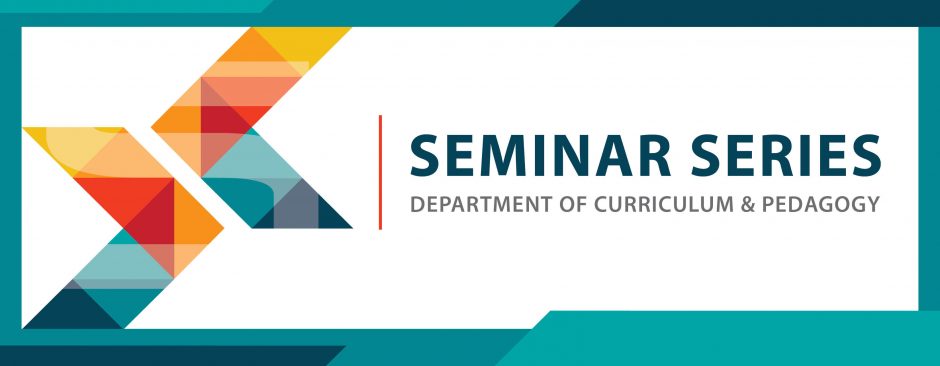
Keith S. Taber | Emeritus Professor of Science Education University of Cambridge
Friday, December 11, 2020 | 9:30 to 11:00 am (PST)
Host: Dr. Samia Khan
Note: rescheduled from October 30, 2020
View the Seminar Poster
Abstract
Constructivism has been a key referent in education for some decades, and is widely seen across many national contexts as a ‘good’ to be promoted in teacher preparation and development. Constructivism can be seen as the basis of a research-informed perspective on learning that guides principled approaches to course design and teaching. Yet constructivist teaching has also been criticised by some influential commentators as misguided and ineffective pedagogy – with constructivism seen as something of a fashionable label capable of covering various instructional sins. This raises questions about how constructivism is understood and applied in different educational contexts; and how wider cultural factors can colour the perceptions of what, to many, is simply a common-sense reflection of what we know about learning. Moreover, in some scholarly circles, constructivism is distrusted as a position that is ideologically unsound: as something of a dangerous agent provocateur, a kind of fifth columnist within educational circles whose sympathies lie with the anti-rational side in the ‘science wars’. From this viewpoint, constructivism is not just wrong, but something of an evil – a kind of heresy. It is possible for educators to disregard this ideological debate if we choose to distinguish between the use of constructivism as a label for a perspective on learning, and a wider philosophical sense of constructivism as the basis of an epistemological theory. That is a move that is easy to make by claiming that we (in education) are only concerned with how students learn from the curriculum (i.e., what might be called psychological or pedagogical constructivism), and are not making claims about how knowledge is developed in disciplinary fields such as in the natural sciences. Yet that argument would seem to pre-suppose that knowledge development in an academic discipline is fundamentally different in nature to, and so relies on qualitatively distinct social and psychological processes from, those at work in student learning – which seems difficult to justify. This talk will seek to make sense of how constructivism can be evaluated so diversely from within different scholarly communities.
Short Bio
Dr. Keith Taber attended state schools before reading chemistry at university and then preparing to teach chemistry and physics. He worked as a science teacher in comprehensive schools, and then in a further education college; obtaining an MSc for girls’ under-representation in science and PhD by part-time study whilst teaching in the area of conceptual change. He then joined the Faculty of Education at Cambridge, initially working in teacher preparation, before shifting to teach educational research methods on graduate courses, as well as supervising student dissertation projects (mainly in areas of science education). Professor Taber just retired in September 2020. He is actively engaged at this time in scholarly projects and the publication of a new book. Most of his research and writing (https://science-education-research.com/ publications/) has been focussed around learning and teaching in the sciences. He has published seminal journal articles and numerous books, including those on student thinking and conceptual change.